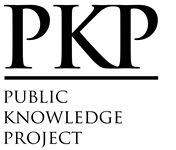A Pragmatic Study of Fallacy in David Cameron’s Political Speeches
Abstract
Fallacy as a derailment of strategic maneuvering can be defined as the process of issuing a defective argument (when subjected to certain criteria) to support and strengthen a previously issued one for purposes of persuasion. However, fallacy is a broad topic that has been approached from different perspectives. Several studies have attempted to tackle it pragmatically. Yet, those attempts have suffered from many gaps and drawbacks which have characterized them as insufficient accounts in this regard. Many pragmatic aspects related to fallacy, like its pragmatic structure and the strategies used for issuing it, have not been given their due attention. Hence, this work has set itself the task of dealing with this problem. Precisely, it concerns itself with the aims of finding out the pragmatic structure and pragmatic strategies of fallacy in David Cameron’s, the British prime minister, war and electoral political speeches. In association with these aims, there is a development of a pragmatic model for the analysis of these two aspects in the speeches scrutinized. This model is built upon several models introduced by several scholars in addition to some contributions made by the researchers themselves. The validity of the developed model is tested by means of analyzing fourteen fallacious situations taken from David Cameron’s war and electoral political speeches. The analyses conducted have proved that the model developed is workable. Besides, they have yielded various results among which is that fallacy is a process composed of various stages. Each stage is distinct for its pragmatic components and strategies.
Full Text:
PDFReferences
Beard, A. (2000). The language of politics. London: Routledge.
Brydon, S., & Scott, M. (2008). Between one and many. New York: Frank Mortimer.
Cavender, N. M., & Kahane, H. (2006). Logic and contemporary rhetoric. Oxford: Wordsworth.
Eemeren, F. H. van, & Grootendorst, R. (1999). Speech acts in argumentative discussions: A theoretical model for the analysis of discussions directed towards solving conflicts of opinion. Berlin: De Gruyter. http://dx.doi.org/10.1515/9783110846089
Eemeren, F. H. van, & Houtlosser, P. (1999). Strategic manoeuvering in argumentative discourse. Discourse Studies, 1, 479-497. http://dx.doi.org/10.1177/1461445699001004005
Eemeren, F. H. van, & Houtlosser, P. (2000). Rhetorical analysis within a pragma-dialectical framework. Argumentation, 14, 293-305. http://dx.doi.org/10.1023/A:1007857114100
Eemeren, F. H. van, & Houtlosser, P. (2002). Strategic maneuvering: maintaining a delicate balance. In F. H. van Eemeren, & P. Houtlosser (Eds.), Dialectic and rhetoric: the warp and woof of argumentation analysis, pp. 131-159. Dordrecht: Kluwer Academic. http://dx.doi.org/10.1007/978-94-015-9948-1_10
Eemeren, F. H. van, Garssen, B., & Meuffels, B. (2009). Fallacies and judgments of reasonableness. London: Springer. Grice, H. P. (1975). “Logic and conversation”. In P. Cole & J. Morgan (Eds.), Syntax and Semantics, 3, 41-58. New York, NY: Academic Press.
Grice, H. P. (1975). Logic and conversation. In P. Cole, & J. Morgan, (Eds.), Syntax and semantics, 3, 41-58. New York, NY: Academic Press.
Hamblin, C. L. (1970). Fallacies. London: Richard Clay Ltd.
Johnson, R. (2000). Manifest rationality: a pragmatic theory. Mahwah, NJ: Lawrence Erlbaum Associates, Inc.
Krabbe, Erik C. W. (1992). So what? Profiles for relevance criticism in persuasion dialogues. Argumentation, 6, 271-283. http://dx.doi.org/10.1007/BF00154330
Ramage, J. D. (2010). Writing arguments. Oxford: Pearson Education.
Tindale, W. (1999). Fallacies and argument appraisal. Cambridge: Cambridge University Press.
Watts, R. (2003). Politeness. Cambridge: Cambridge University Press. http://dx.doi.org/10.1017/CBO9780511615184
Walton, D. (1995). A Pragmatic theory of fallacy: Studies in rhetoric and communication. London: University of Alabama Press.
Walton, D., & Reed, C. (2003). Argumentation schemes in argument as a process and argument as a product. In J. Anthony et al. (Eds), Proceedings of the Windsor Conference. Windsor, Ontario: Ossa.
Walton, D. (2007). Media argumentation: dialectic, persuasion and rhetoric. Cambridge: Cambridge University Press. http://dx.doi.org/10.1017/CBO9780511619311
Web source (online). David Cameron @ British Rhetoric.com
DOI: https://doi.org/10.5296/jsss.v2i2.7616
Refbacks
- There are currently no refbacks.
Copyright (c) 2015 Fareed H. H. Al-Hindawi, Musaab A. Alkhazaali, Duaa Al-Awadi

This work is licensed under a Creative Commons Attribution 4.0 International License.
Journal of Social Science Studies ISSN 2329-9150
Copyright © Macrothink Institute
To make sure that you can receive messages from us, please add the 'macrothink.org' domain to your e-mail 'safe list'. If you do not receive e-mail in your 'inbox', check your 'bulk mail' or 'junk mail' folders. If you have any questions, please contact: jsss@macrothink.org
-----------------------------------------------------------------------------
